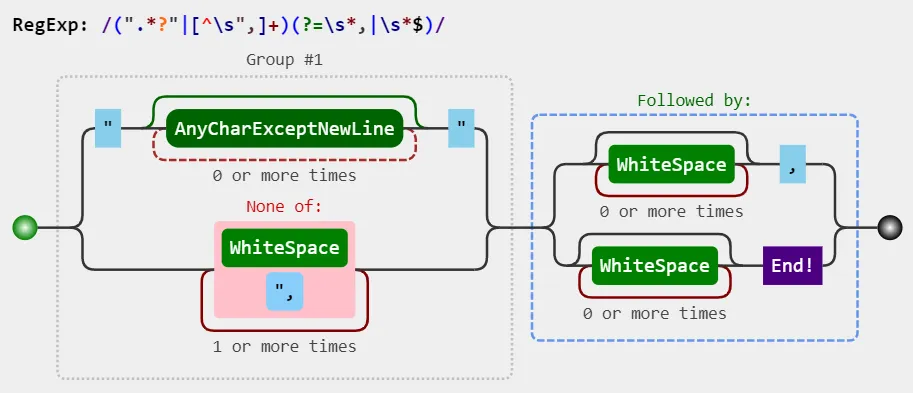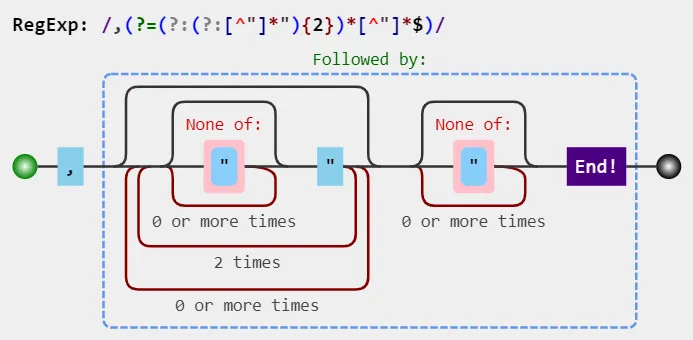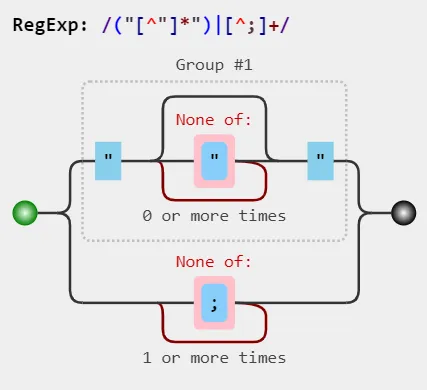我想把
[a, b, c, "d, e, f", g, h]转换为一个6个元素的数组: a, b, c, "d,e,f", g, h。我尝试通过JavaScript实现这个目标。以下是我的尝试代码:str = str.split(/,+|"[^"]+"/g);
但现在它正在分离出所有在双引号中的内容,这是不正确的。
编辑:好的,对不起,我表达得很差。我收到了一个字符串而不是一个数组。
var str = 'a, b, c, "d, e, f", g, h';
我想使用类似于“split”函数的东西将那个转换为数组。


